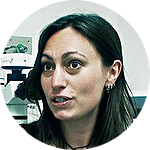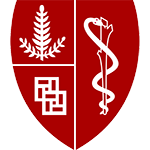
Feb 12, 2012
Researchers at McMaster University have discovered a brief 10-minute massage helps reduce inflammation in muscle.

Feb 1, 2012
Stem cell researcher has become the first Australian to win microscopic image competition.

Jan 15, 2012
Recent discoveries provide us with a clearer understanding of how the genetics of FSHD translate into disease.

Dec 28, 2011
DUX4 Activates Germline Genes, Retroelements, and Immune Mediators: Implications for Facioscapulohumeral Dystrophy.

Nov 28, 2011
Degeneration of muscles in FHSD is associated with fatty replacement on magnetic resonance imaging.

Nov 27, 2011

Nov 20, 2011
The gene thought to cause FSHD, Double Homeobox Protein 4 (DUX4), is unusual because it is encoded within each unit (D4Z4) of large arrays present on chromosomes 4 and 10.

Nov 11, 2011
The main findings describe pervasive inflammation and heterogeneity of affected calf muscles in FSHD.

Oct 31, 2011
Test selected compounds for their efficacy in preventing damage caused by DUX4 expression.

Oct 19, 2011
An update by Barbara D Page on the work done for the first of a 2-year project titled "Using model organisms to identify new therapies and understand the pathogenesis of FSHD."

Sep 6, 2011
The Miller Lab has made exciting progress in the development of a platform for screening genes and compounds with activities that affect FSHD-specific pathogenic processes.

Sep 6, 2011
A major goal of the Seattle FSHD research consortium has been to develop platforms for drug discovery.

Aug 9, 2011
Summary of paper in Molecular Therapy from Joel R. Chamberlain and Davide Gabellini

Oct 29, 2010
An international research consortium shows that FSHD muscle nuclei are poised for expression of the toxic DUX4 protein.

Oct 21, 2010
University of Rochester published interview with Dr. Rabi Tawil.

Sep 20, 2010
An international research collaboration that includes research groups funded by the Friends of FSH Research has made a critical advance in determining the cause of FSHD.

Sep 20, 2010
An international collaboration identifies a region of DNA necessary for FSHD and focuses attention on DUX4 as the cause of muscle deterioration.

Sep 16, 2010
This brought together the various labs which have been collaborating in an effort to push ahead on FSH research through an open exchange of unpublished research.

Jul 25, 2010
Clinical study participants needed.

Jul 15, 2010
Researchers at the Stanford University School of Medicine have developed a technique they believe will help scientists overcome a major hurdle to the use of adult stem cells for treating muscular dystrophy and other muscle-wasting disorders that accompany aging or disease: They've found that growing muscle stem cells on a specially developed synthetic matrix that mimics the elasticity of real muscle allows them to maintain their self-renewing properties.





Connect with us on social media